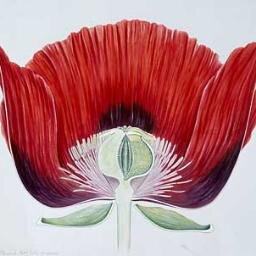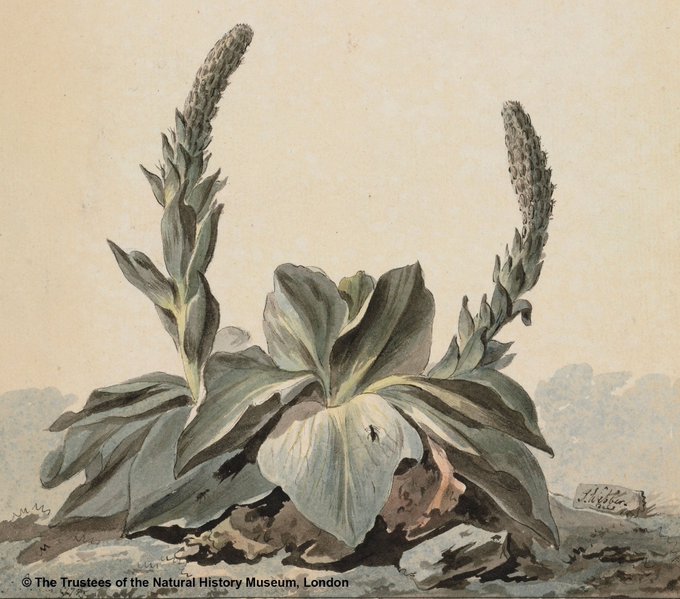X #NatureMW Xylomelum pyriforme, woody pear (Watling between 1792-1797). The pears split down the middle when they are dried, creating two halves. The fruit protects its seeds from fire, an important evolutionary development given the prevalence of bushfires in its habitat
S #NatureMW Strelitiza augusta. Strelitzia depicta, or coloured figures of the known species of the genus Strelitzia by Franz Andreas Bauer (1758 - 1840) #MuseumWeek
Q #NatureMW Hylocereus triangularis, Queen of the night fruit. Plate 510 from the John Reeves Collection of Botanical Drawings from Canton, China #MuseumWeek
P #NatureMW Pringlea antiscorbutica, Kerguelen island cabbage - 1st discovered during Captain Cook's third voyage to the Pacific (1776–1780) by surgeon William Anderson. Being rich in potassium & vitamin C, its consumption greatly helped those suffering from scurvy at sea
N #NatureMW Nautilus by James Barbut (fl.1776 - 1791) #MuseumWeek
J #NatureMW Jackfruit (Artocarpus heterophyllus) by James Kerr (1738-1782), part of the John Fleming Collection. This fruit is native to India & bears large, heavy fruits that are related to the mulberry. It is grown throughout Southeast Asia & used in different regional cuisines
C #NatureMW Charaxes bernardus (Tawny rajah) an illustrative plate from Insects of China by Edward Donovan. View the whole 1838 publication for free via @BioDivLibrary https://t.co/DrHzn9cqoj #MuseumWeek
A #NatureMW 'Ananas sativus' (pineapple) From a collection of original drawings and sketches by Georg Dionysius Ehret (1708-1770) #MuseumWeek
These puffins by Muriel Helen Dawson (1897-1974) have been on display in the Images of Nature Gallery, attracting the attention of some of our younger visitors #kidsMW 1of3
It is hard to believe that Florence Woolward (1854-1936) received no formal training in botanical illustration. This poplar (Populus deltoides) is from her studies of poplar & elm trees #WomensHistoryMonth #womensart #IWD2018 #InternationalWomensDay











